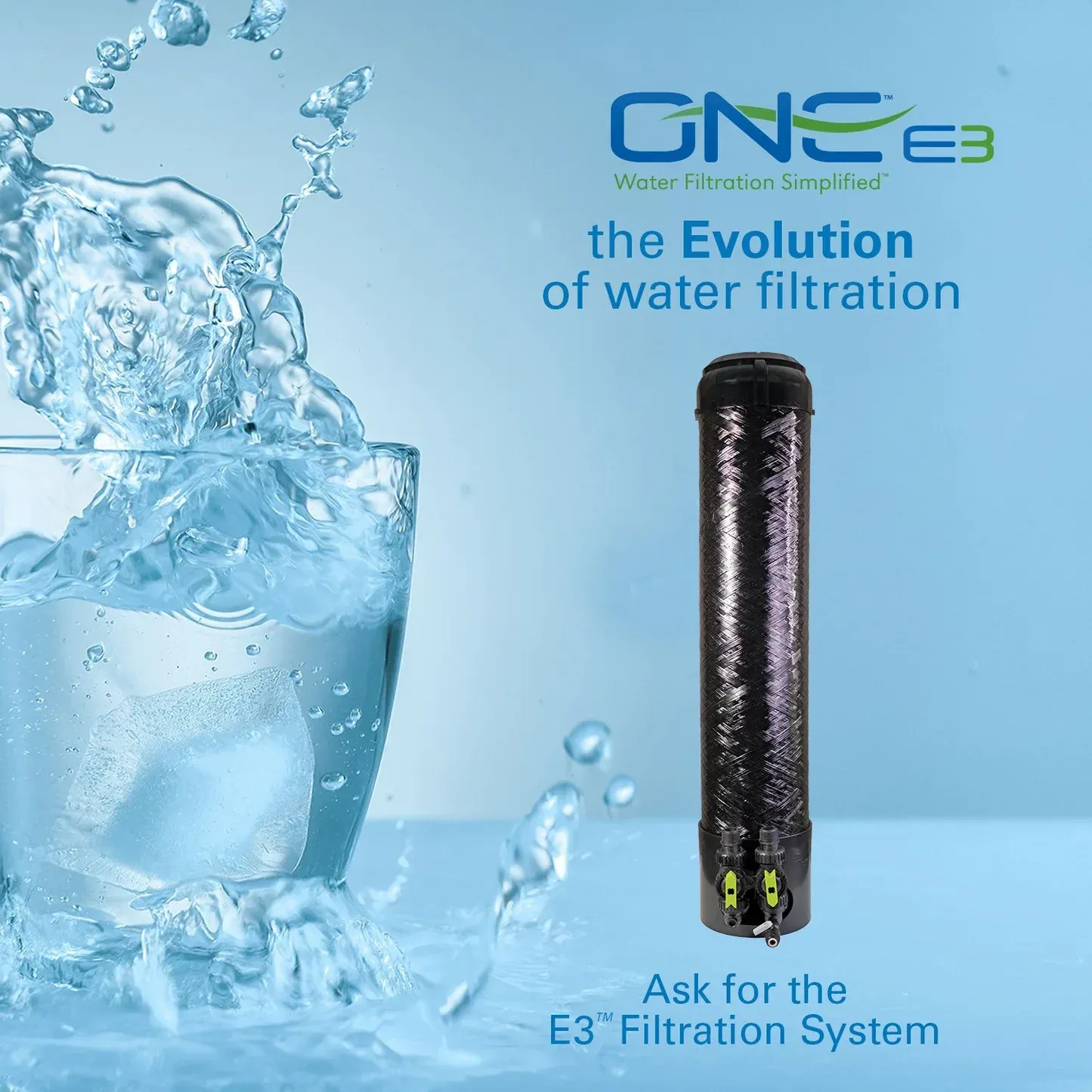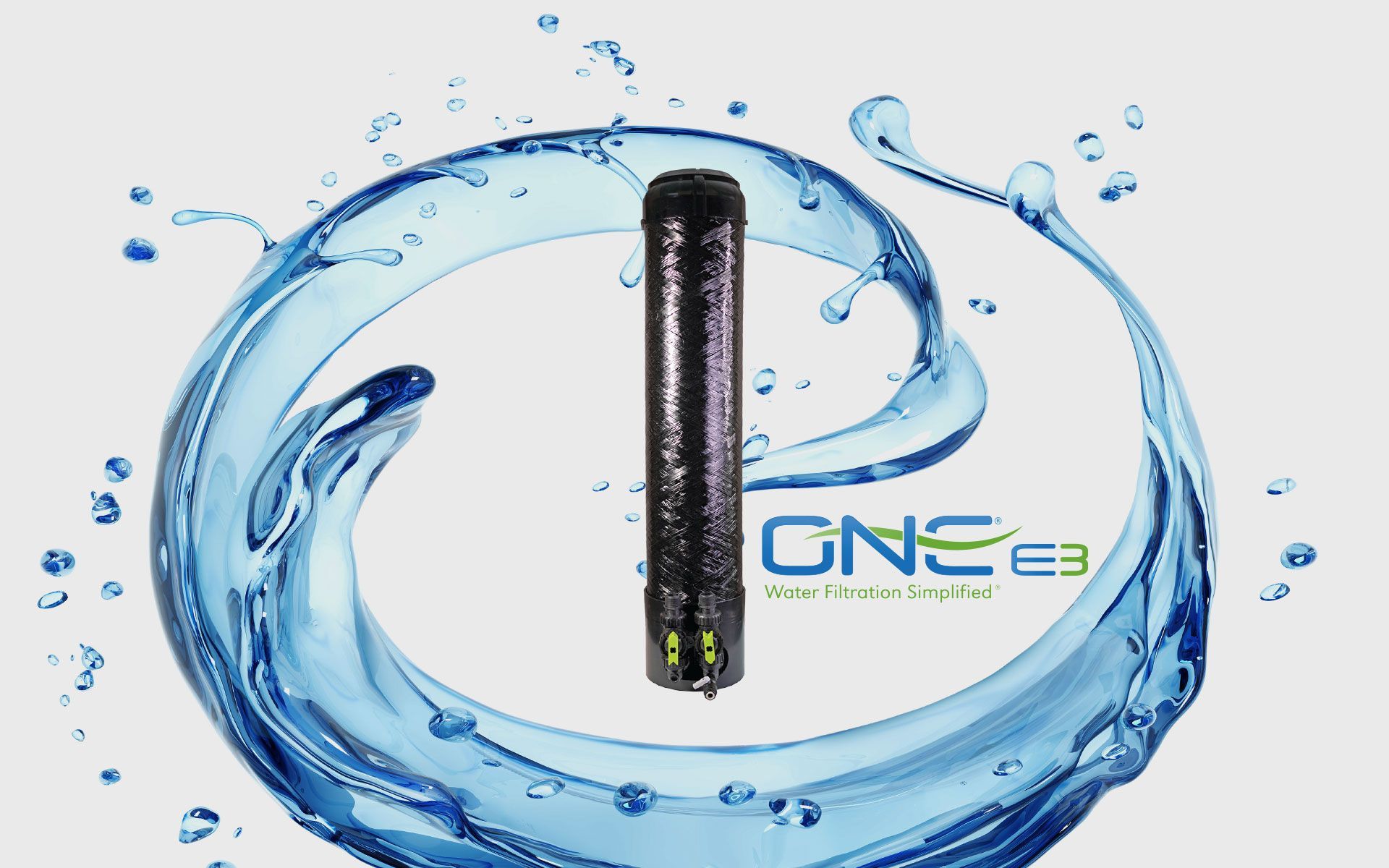Understanding PFOS and PFOA in Dubuque, IA Water: Why Treatment is Essential Now
🌊 Tune in to our latest podcast on tackling PFOS & PFOA in Dubuque & Platteville water! 🎙️ Discover life-changing solutions with Mast Water Technologies! 💧✨ #CleanWater #PodcastAlert #WaterSafety

In the heart of the Midwest, where the Mississippi River shapes the landscape and livelihoods of communities like Dubuque, IA, and nearby Platteville, WI, access to clean drinking water is more than a convenience—it's a necessity. Yet, recent concerns about "forever chemicals" like PFOS (perfluorooctanesulfonic acid) and PFOA (perfluorooctanoic acid) have raised alarms for residents relying on local wells and municipal supplies. These persistent pollutants, part of the broader PFAS family, don't break down easily and can accumulate in water sources, posing potential health risks over time. If you're searching for "PFOS in Dubuque water" or "PFOA health risks IA," you're not alone—thousands of locals are taking proactive steps to protect their families. At Mast Water Technologies, serving Platteville, WI, Dubuque, IA, and surrounding areas, we're committed to providing effective solutions like reverse osmosis systems to safeguard your home's water quality.
This guide breaks down what PFOS and PFOA are, the health concerns they raise, the latest 2025 reports highlighting elevated levels in our region, and practical tips for testing and treatment. With EPA regulations affirming strict limits, now is the time to act—don't wait for contamination to impact your well-being.
What Are PFOS and PFOA? The Basics of These "Forever Chemicals"
PFOS and PFOA are synthetic compounds developed in the mid-20th century for their water- and stain-repellent properties. PFOS was a key ingredient in products like Scotchgard, while PFOA powered nonstick coatings such as Teflon. Though phased out in the U.S. since the early 2000s, these chemicals linger in the environment due to their unbreakable carbon-fluorine bonds—earning them the nickname "forever chemicals."
These pollutants enter water systems through industrial runoff, firefighting foams, and even consumer products that degrade over time. In areas like Dubuque and Platteville, where groundwater and the Mississippi River feed local supplies, PFOS and PFOA can seep into shallow wells, contaminating drinking sources. According to the EPA, about 20% of lifetime PFAS exposure comes from drinking water, making it a critical pathway for residents in our region.
Why does this matter locally? Dubuque's shallow wells along the river, which supply much of the city's water, have tested positive for these compounds, while Platteville's rural wells face similar risks from agricultural and historical industrial activities. Understanding these chemicals is the first step toward cleaner water.
The Health Risks of PFOS and PFOA: From Cancer Links to Immune System Impacts
Exposure to PFOS and PFOA isn't just an environmental issue—it's a public health one. The International Agency for Research on Cancer (IARC) classifies PFOA as "carcinogenic to humans" (Group 1), based on sufficient evidence from animal studies and strong mechanistic data in humans showing epigenetic alterations and immunosuppression. PFOS earns a "possibly carcinogenic" rating (Group 2B), with limited evidence in animals and humans but robust signs of immune disruption.
Key health risks include:
- Cancer Connections: PFOA is linked to kidney, testicular, and prostate cancers, with epidemiological studies showing increased incidence in exposed populations. PFOS may contribute to hormone receptor-positive breast cancers in postmenopausal women. For "PFOA health risks IA" searches, these ties are especially relevant, as Midwest communities report higher exposure from legacy pollution.
- Immune System Suppression: Both chemicals impair the body's defenses, reducing vaccine efficacy and increasing infection risks. Studies show PFOS and PFOA alter white blood cell activity and antibody production, potentially worsening autoimmune conditions.
- Other Effects: Elevated cholesterol, liver enzyme changes, thyroid issues, and developmental delays in children round out the concerns. Low-level, long-term exposure—like from daily tap water—amplifies these risks, particularly for vulnerable groups in Dubuque and Platteville families.
The EPA estimates no safe level exists for PFOA or PFOS, underscoring why treatment is non-negotiable.
Recent 2025 Dubuque Reports: Levels Exceeding EPA Limits—and What It Means for Platteville & Dubuque Area Residents
In 2025, Dubuque's annual water quality report revealed PFOS levels hitting 4.2 parts per trillion (ppt) in May tests—exceeding the EPA's 4 ppt Maximum Contaminant Level (MCL) for both PFOA and PFOS. While winter tests dipped below 3 ppt due to reduced reliance on contaminated shallow wells, summer spikes highlight seasonal vulnerabilities tied to the Mississippi River. The city plans $15 million in upgrades, including a new deep well, but residents aren't waiting—demand for home filtration is surging.
Across the river in Platteville, WI, the picture is equally concerning. Wisconsin's Department of Natural Resources (DNR) enforces a 70 ppt standard for PFOA and PFOS in drinking water, but 2025 EPA data flags regional groundwater hotspots near the Platte River. The state's PFAS Action Plan, mirroring Iowa's, shows elevated detections in rural wells, with average total PFAS in contaminated groundwater at 43.9 ng/L (nanograms per liter, or ppt). Platteville's proximity to Dubuque amplifies shared risks from cross-border pollution.
EPA's May 2025 announcement retained the 4 ppt MCLs but extended compliance to 2031, giving systems time while urging immediate action for high-exposure areas like ours. For locals, this means testing now to stay ahead of potential mandates.
Effective Treatment: Proven Solutions for PFOS and PFOA Removal in Your Home
When it comes to removing PFOS and PFOA, not all treatments are equal. Granular activated carbon (GAC) works well for long-chain PFAS but falters on shorter variants. At Mast Water Technologies, we offer cutting-edge options like reverse osmosis (RO)—the gold standard endorsed by the EPA for up to 99% removal of these chemicals. Our RO systems push water through a semi-permeable membrane under pressure, trapping PFOS and PFOA in a concentrate stream while delivering pure permeate. Certified to NSF/ANSI 58 standards, these units reduce contaminants to below detectable levels (as low as 2 ppt in pilots). Ideal for Dubuque homes with river-sourced water or Platteville wells, our whole-house and under-sink options include multi-stage filtration for comprehensive protection.
For even more targeted PFAS removal, Mast proudly integrates the Pioneer filtration system by EnPress LLC—a revolutionary whole-house (point-of-entry) solution designed specifically for forever chemicals. The Pioneer Lead & Chemical Filter system features proprietary ATOMUS® media in a 0.5-micron carbon block cartridge (CT-05-CB-AMYCL), engineered for molecular selectivity against both long- and short-chain PFAS like PFOA, PFOS, PFHpA, PFNA, PFHxS, PFBS, GENX, and PFDA. Independently tested and third-party certified to NSF/ANSI P473 for PFOA/PFOS reduction (97.9% removal) and NSF/ANSI 53 for lead (99.62%) and cyst (>99.95%) reduction, it outperforms traditional GAC or ion exchange resins with over 25x adsorption capacity, resistance to fouling, and no backwash required—making it perfect for the variable water chemistry in Dubuque and Platteville.
Key benefits of the EnPress Pioneer Lead & Chemical Filter system include:
- Superior PFAS Removal: Achieves non-detect levels (<1 ng/L or ppt) for up to eight PFAS compounds, even at influent levels of 3,000+ ppt, treating over 168,000 gallons per cartridge at 7 gpm with 99.9% reduction.
- User-Friendly Design: Low pressure drop, high flow rates (up to 10 gpm), and a compact 8" x 40" non-metallic housing in the EnPress ONE E3-M® series—ideal for residential and light commercial use without hazardous waste or bulky media changes. Meter-equipped with green/yellow/red indicator lights for easy cartridge replacement.
- Additional Protection: Also removes soluble and particulate lead, chlorine (>300,000 gallons at 15 gpm with 90% reduction), chloramine (>150,000 gallons at 8 gpm with 85% reduction), arsenic, heavy metals, and chemicals, providing all-in-one filtration for Midwest water challenges.
- Eco-Conscious: Exhausted cartridges are PFAS-free for safe disposal or recycling via EnPress's extraction program, minimizing environmental impact.
Local Expertise: Installed by our Platteville and Dubuque pros, the Pioneer pairs seamlessly with pre-filtration for iron or sediments common in regional wells. With cartridge life up to 100,000+ gallons for PFAS and lead, it's a cost-effective, long-term investment. Contact Mast today for a customized Pioneer setup—complete with free water analysis.
Tips for Testing Local Wells: Simple Steps for Dubuque and Platteville Residents
Private wells in our area demand vigilance, as they're unregulated like municipal systems. Here's how to test for PFOS and PFOA:
- Gather Supplies: Use lab-provided PFAS-free bottles to avoid contamination—wash hands thoroughly first.
- Collect the Sample: Run cold water for 5-10 minutes, then fill without rinsing the bottle. For wells, sample post-pump to capture raw groundwater.
- Choose a Lab: In Iowa, contact the DNR or certified labs like those in the PFAS Action Plan; in Wisconsin, the State Laboratory of Hygiene offers EPA Method 1633A testing (required since Feb. 2025). Costs range $200-500 for 6-14 PFAS compounds.
- Interpret Results: Aim below 4 ppt per EPA MCLs. If elevated, Mast offers free follow-up consultations to recommend systems like Pioneer or RO.
- Frequency: Test annually or after floods/heavy rain, common in our region.
Early detection empowers action—many Platteville and Dubuque well owners have caught issues early with these steps.
Take Control of Your Water Quality Today
PFOS and PFOA in Dubuque, IA water—and neighboring Platteville, WI wells—aren't going away without intervention. With 2025 reports confirming exceedances and health risks like cancer and immune suppression looming, treatment isn't optional. Mast Water Technologies' reverse osmosis and EnPress Pioneer Lead & Chemical Filter systems deliver proven, local solutions to keep your family safe.
Ready to test or install? Schedule a free water analysis with our Platteville or Dubuque team today. Visit mastwatertech.com or call . Clean water starts now—don't let forever chemicals steal your tomorrow.






Share On: